
Being the comic enthusiast that I am, I have
obviously gravitated to the TV series “Heroes”. I can’t get enough of it, and one
of the reasons for that is because of the character of Claude. This rogue who
turns invisible to hide himself from the world is marvelously played by Chris
Eccleston; who just happens to be playing the character of The Rider in the
upcoming feature THE DARK IS RISING. Based on the Susan Cooper work of the same
name, the story follows a young boy who discovers that he is the last of ‘The
Old One’s’ to be born, and must help The Light defeat The Dark.
The Dark just
happens to be led by Mr. Eccleston, so it was a pleasure to have the opportunity
to speak with Chris. Unable to be on set the day we were there, he was gracious
enough to have us come visit him at his hotel where we bought bottles of Leffe
beer, some strange anchovies appetizers, and than charged everything to
Eccleston’s room. Chris spoke to us about the duality of The Rider character and
even spoke briefly about “Heroes” and whether or not he would return for another
season.
Christopher
Eccleston

Had you ridden a horse before this?
No.
How much training did you get?
As much as we could in a very short time. I left the stunt men to do the easy
stuff and I do all the dangerous stuff. That’s the way I like work.
We heard that today or recently you do the big stunt where you ride into the
great fall and then they rescue you away on the horse.
You know more than I do! The last thing I heard was that the horse was going to
very cleverly go down on all fours, which I’ve seen them do, which is pretty
extraordinary. Taz and Steffen who take care of the horses are amazing. So the
last thing I heard was the horse was going to go down on all fours and I was
going to step ever so sensitively off it. Sounds more like American idea.
What can you tell me about your character?
The character of The Rider is the antagonist, the nemesis, the villain of the
piece. He differs somewhat from the book. There’s been some poetic license taken
and there’s an ability that The Rider has which he doesn’t have in the book
which would be slightly spoiler-ish, but he’s got a few surprises up his sleeve
in how he manifests himself. I’m teasing, but I want that kind of thing to be an
element of surprise for the audience.
You play most of your scenes with Alexander Ludwig?
Yes.
Can you talk about that?
Apart from a brief scene with the old ones at the beginning and at the end, I’m
exclusively with Alex.
How is that?
He’s an amazing young man and to carry a film like this, I carried a film when I
was 27 and couldn’t really speak or think for the two months afterwards, but he
seems it’s just water off a duck’s back. The thing about him apart from his
abilities as actor, which are apparent, he’s just a very, very decent young man.
And I’m not just saying this to you. A few of us have said to his parents who
have been around, you know they brought up an excellent young lad and you’d like
to see him succeed because he doesn’t seem tainted by all the Hollywood bullshit
that we all know so much about.
Were you familiar with the books? Had you read them beforehand?
No. I’d never heard of the books, but as a child I was hugely passionate about
LORD OF THE RINGS. I understand the kind of passion that people feel for these
books. I think they should be left for childhood. People say ‘Lord of the Rings
was the greatest novels ever written’. You’re like, no, they’re not. They’re
childhood. But I read the book for this and enjoyed it very much. And obviously
it’s close to me because it’s couched in Celtic mysticism and it’s a very, very
intensely British book.
I have visions of the Dark riders from the ‘Lord of the Rings’ when I think of
your character, are there any similarities there?
I think there must be, yeah. When you read the book, I can’t believe that she
wasn’t in some ways influenced by Tolkien because by that time, the mid ’70’s,
Tolkien’s books had made such a huge impact. But it actually predates Potter and
all that stuff. I think I’m sure that if we dove in some mythology that a man on
horseback spreading terror was probably lifted by Tolkien himself, you know.
Probably from Greek stuff the archetype being their problem. Yeah, I think there
are kind of similarities and I think some of the terror resides in the fact
that, for children at least, it’s not about machinery. It’s that this man has an
animal. The thing we’ve talked about with the Rider is that without the horse,
he’s slightly powerless. And that him and his horse are kind of indivisible.
Is this the most absolute character you’ve played in a while? I was thinking
before of the more recent parts you’ve done, you tend to go for morally
ambiguous characters whether it’s the character you played in ‘Perfect Parents’
last year or more recently in ‘Heroes’, you can’t really pigeon hole these
people, they straddle both sides. Yet, this is a character who, in the book,
will be pretty much an archetypal bad guy. Do you play that for what it is or do
you try to add a few extra colors? (Note: At this time, for whatever
reason, the bar we were sitting in decided to blast some sort of bizarre adult
contemporary music even though they knew we were all there for an interview with
Eccleston. Everyone tried to ignore it, but it became so loud and hilarious we
all stopped to drink and enjoy the Romanian equivalent of Kenny G)
I’ve tried, but failed. [Laughs] You try to add extra colors to it, but I’ve had
that debate throughout the entire shoot, whether you should just go for mono-loid
one-dimensional savagery bad guy or you should try. I think there are virtues in
both. I think I’ve tried to give it a twist, whether that’s the right thing to
do, I don’t know.
Is that something you’d rather not say too early on?
There are two sides to The Rider. And there’s an area where I can kind of
suggest things about his character while not actually appearing as him. They’re
just so cryptic.
David Cunningham said that he was striving for a certain kind of realism in
this film and when we talked to Ian McShane, he said that that was his goal in
the character as well, but he mentioned that your character could afford to be a
little bit more operatic perhaps.
Who said that? McShane? He’s loaded me with it all has he? Typical actors.
Spineless. [laughs] ‘Don’t blame me, blame Chris.’
Is that true?
I’ve been watching him, he’s pretty camp; Old McShane. I think The Rider is
slightly less defined actually than most of the characters. He doesn’t have as
much screen time as The Rider per se, but even within that, I’m sure a much
better actor than me would say you’ve got to find a kind of truthfulness. You’ve
got to. Audiences are pretty exacting nowadays, so it has to feel real to you in
some way.
What was it about him that appealed to you?
The spoiler thing actually. When you see it, you’ll understand. There’s an
opportunity with The Rider for humor and subversion and satire that I’ve not
seen before in these kind of films and it was that. It was that most of all.
99.9 percent of the dramas I’ve made have been for adults, film and television
and this was a real opportunity to try something new. I’ve had some experience
with ‘Doctor Who’ of making drama for children, I think it’s a really important
area if we can provide them complexity and gray area rather than just a fun fair
ride. That’s what appeals to me.
You play a second character also in the movie? You play a doctor of some
kind?
Yeah.
What’s that…
That’s the spoiler, yeah. With him, I have a
chance to, I’m the same guy, but…
That happens in the first book and in the last couple. There’s the Rider
doing duplicitous things.
But it doesn’t happen in the second one?
No it doesn’t happen in the second one.
No. So they’ve obviously stolen that from here. Because the writer of this film
is a man I worked with on ‘Shallow Grave’, John Hodge, who you may have spoken
to today.
You mentioned opening things up to this younger audience and having done
‘Doctor Who’. Did that change your framework of looking at things in terms of
your work and say now I see what it’s like to have a younger audience as well.
I’ve got a whole cache of people who I hadn’t worked for previously that I can
now do parts for in my career.
I think their much more exacting than adults, actually. I think their much
harder to fill. And they’re much fiercer in their attachment once they’ve taken
you to your heart, but they have better bullshit detectors than us. I remember
that as a child myself. And that appeals to me because I’ve always tried to
involve myself in stuff that is in some ways sophisticated and challenging to
the audience, that respects its intelligence.
Doing stuff for a younger audience keeps you more honest as an actor then?
‘He said enigmatically’. Possibly it does in a sense, yeah. Their very straight
about how they feel about you. Children are far more sophisticated than some of
the product that is aimed at them. I think we probably all feel that. I look at
some films and television and…
Do you feel that your experience with ‘Doctor Who’ has opened you up to a
wider range of roles than you might have been offered in the past?
No. I think I’ve been at it 18 years before I got there so no. I think it was
just slightly different; there was perhaps more lightness in the role than I’m
associated with. But apart from that, no, I would say I was often kind of
hopping around genre and character.
Can you say how it is to work on a film compared with working on a TV series
like ‘Doctor Who’ or an American TV series?
It’s a lot slower. Television, and I enjoy the pace of television, although of
course with some of the independent films like, for instance ‘Shallow Grave’ or
maybe ‘Jude’ even, we didn’t have as much time. But television is faster. And I
think in television I feel, obviously because of the size of the screen and less
the production values, there’s a healthier reliance on performance and script.
I’ve always said that the strongest scripts I’ve had in my career have been,
apart from theater, have been in television because you only have really the
actors’ faces. So from an acting point of view, my best scripts have been in
television. It’s quicker, but of course you’re not allowed, we’re using
multi-cameras on this. I don’t think I’ve ever experienced that. I’ve never seen
so many cameras. There’s probably six trained on us now.
Is that a bigger challenge to know that you’re being captured from all these
angles that you’re not playing to?
The camera team on this film are fantastic in terms of telling you exactly
what’s going on, but I kind of believe that if you’re being truthful, you’re
being truthful. I think to a certain extent one can get obsessed with what lens
is on, and I do like to know if they’re right in there and if they’re also very
wide, I’m going to concentrate on the fact and try not to look too much like
Popeye in my close up, not that I ever succeed.
I’d like to ask you a question about ‘Heroes’, is your character coming back
this season or next season? Do you have plans?
We haven’t spoken about that yet. I’d certainly be open to it. I get the feeling
that they’d be open to it, but I think we all feel that he made a good impact
and in a sense it’s a decision whether to leave it at that because it just adds
to the fabric of their series. I think there’s got to be something really meaty
for him to do for me to go back, but I’d certainly like to. I was made very
welcome by that crew and that cast. Being a Brit on that film, I’ve never been
offered so many cups of tea in my life. But you do, it’s like you get lots of
attention because you’re different.
Let me ask you about your schedule, what’s your schedule like? They’ve been
here for three months, have you been staying here the whole time?
No. All my work here is done. I finished on ‘Heroes’ in late January.
So you finished that and then came over here?
Yeah, a couple of weeks before.
Have you been going back on the weekends?
Well, I lived in Los Angeles last year for nine months, but I’m actually based
in Manchester. So I’ve been able to get home to my home in Manchester. I’ve not
been back to LA.
Ian McShane told us about his “deep love of Romania”. Do you share that?
I fell in love first! Romania’s been unfaithful to me with Ian McShane. The
Romanian people have been absolutely fantastic, but the problem the actors have
experienced is, particularly the Americans, is that when you’re here and you’re
not working you are stuck in a hotel. And you’re a long way from home. I mean
the Romanian crew on this film have been extraordinary and it’s a very different
culture, particularly for Americans to come into. I’m somewhat familiar with
European poker face. I’ve been made very welcome here.
Can you say what you feel about CGI? Obviously this film is trying to avoid
doing too much of it. What do you feel about it?
What is CGI? (Laughs and looks around)
Computer generated effects, where they don’t make much of the set and they
just paint it on electronically.
Have you seen some of the sets on this? I mean one of the great things for me on
this film has been wandering around the sets and seeing the work that the
Romanian crew has done on it.
The reason I ask is because I have a bit of a beef with too much CGI, even
though I like science fiction films and such…
Me, too.
When it goes too much, it starts becoming a cartoon.
Yeah. Well, it becomes soulless. I got very caught up with the debate about when
‘Belleville Rendez Vous’ came out and ‘Spirited Away’ and that great discussion
about animation that was drawn by human beings and stuff that was computer
generated and for me, ‘Belleville Rendez Vous’ wins every time because there’s
something in it that is soulful and moving. As brilliant and as fantastic as
‘The Incredibles’ was, there was something moving about ‘Belleville…’, you know.
And it’s a similar kind of, I’d sooner look at somebody graft and work than
whatever.
So you got along with this idea of actually trying to cut it down and do it
real?
Yes. Yeah I do. I think you’re going to end up with films that will live and
breath in a hundred years time in an indefinable way, actually. And I felt that
about, it was thrown up with that animated debate. ‘Belleville…’ for me was just
intensely moving film.
About the horse riding, you were talking about doing this latest scene
they’re going to do tomorrow where you have a horse and you’re riding up and
down steps. The Rider seems like a fairly skilled rider. How much of that have
you been able to do? How much do you have the stunt men do and show the back of
his head?
I’ve done as much as I possibly could. But no matter how skilled a rider you
are, the studio are watching you like a hawk because of insurance and because
this is a comparatively low budget film for what they’re trying to make so they
do not need actors embedded in walls and things. [Laughs]
Do you have a horse trainer? Do they get the horse to go where you want it?
The main horse we’ve used, who I am in love with, Ian McShane may be in love
with Romania, but I am love with this horse. He’s called Rusty and incredibly
skilled. If you get a chance, I mean watching actors act is boring, but watching
Steffen and Taz wrangle that horse and the relationship between them is
amazing.
It’s such a cliché already but W.C. Fields says never act with children or
animals and you’re doing both.
Rusty said the same thing about me. Through gritted teeth. That animal is far
cleverer than I could ever, I’m going both, yeah and they’re both far cleverer
than I could ever dream of being. [Laughs]
Does your character return throughout the series of books?
I’ve not read the other books, but my character does come back.
Is that something you look at it, like when you’re doing this movie is that
something that you want to know about in case the movie does really well? Or do
you not worry about that stuff?
Well, that was addressed at the contractual level anyway. But you know it’s nice
to work but I wouldn’t want to just keep doing the same thing. I think my career
kind of shows that I guess kind of. Commercial consideration is not at the top
of my tree.
You’re not hesitant about signing something which may or may have to do more
than one movie before actually doing the movie to see how it goes?
Of course I’m hesitant. Of course! But that was the deal.
With the diversity of your career, is that conscious in a very specific way,
like you say I’ve done a drama, I need to do something a little bit different,
or is it just how you naturally pick roles?
My career’s been a continuation of the two years I did at college and the three
years training as an actor. What I understood is that you cannot be a finished
article. So when I’m gone I just hope to be remembered as somebody who was
skilled at what he did. So by trying different things it’s like you guys trying
to write different articles or so, that’s what I’ve tried to do. Rather than a
couple of times I’ve made commercial decisions and they’ve blown up in my face
frankly. Whenever I’ve followed my heart, by in large it’s rewarded me and it’s
a difficult line to walk for actors, directors, and writers. But I just want to
try and take the roles that frighten me. I played a Hasidic Jew in an
independent film ten years ago. Who is going to cast me in that? I had a go. Why
do the stuff that’s easy?
Isn’t there a certain paradox you mentioned about the good scripts coming
from television and I can’t help thinking in a way the television roles you’ve
had have opened you up to a much wider audience but at the same time they’ve
almost sort of narrowed the sort of roles you might get offered because people
tend to think, he did ‘Doctor Who’ or he did ‘Heroes’ and sometimes people are
bleaker in the way they think of what actors can do. Does that help and hinder
you at the same time?
I’ve played a variety of roles in television really and the film career was a
kind of separate thing. The spine of my work has been television really. I don’t
know how to answer that, really. I think every actor gets, you all get put in a
box.
I can’t help thinking do you sometimes take a role because you just think
‘I’ve got to just leap out and do it’ I was thinking the ‘Second Coming’, when I
saw you in that I thought, man, he’s got balls because it was such a vivacious
piece. Do you sometimes think ‘I don’t know how this is going to turn out but
I’m just going to jump and see what happens.’
With something like that I think more and more what’s offered to audiences
intellectually is anorexic and with something like that I thought ‘I’ve got to
be part of this’ because I do a job that I love and most people don’t. I get
paid well for it so the least I can do is give something back. With that, a
debate about faith and the death of religion, I don’t know if it’d be broadcast
it in America, but British television is in a bit of a state at the moment and
we made that five years ago, I’m not sure that that kind of television would be
made at the moment. And since the beginning of my career in British television,
you know, everybody at home now is watching HBO.
That’s what I thought. Was it on channel 4?
It was on ITV. It was originally written for Channel 4 and it was a much bigger
piece.
They probably wouldn’t do it again, now would they?
ITV, at the moment, probably not. Although the regime has changed there and
there’s great hope for that regime.
You’re almost done here, what’s next?
I’m going to New Orleans for four days to do some re-shoots on a curious strange
film I did last autumn in New Orleans called ‘New Orleans, Mon Amour’, which is
set post-Katrina amid the relief work with a director called Michael Almereyda
and an actress called Elizabeth Moss. I’m going to do that and then I think I’m
going to do Macbeth in the West End. I think. If we can pull the deal together,
which is something I’ve wanted to do since I was 17.
As an actor who makes a living in film and television, you do theater, you
have to commit yourself for a long period of time, is that a consideration that
you have to make?
For my agents it is, yeah. There probably under the table. It’s a consideration
for me because I’ve done very little theatre and I go into that rehearsal room
with a lot of people who are far more experienced than me and again that’s the
idea of challenging myself. There was a great actor called Michael Bryant who
called film and television acting ‘arm chair acting’ and there’s a kind of truth
in it. It’s a big challenge for me.
What theatre company?
It’s an independent producer called Sonya Freidman and we’d be going and it
wouldn’t be with the R.S.C., we’d just be going into the west end and I hope,
not staging a vanity piece, I hope doing something that’s kind of a radical take
on it. It’s a very difficult play to do. Anybody who knows the play, it’s how do
you make the witches work?
Thank you very much.
Thank you!


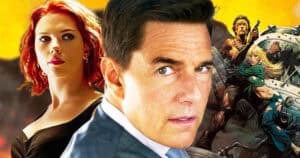
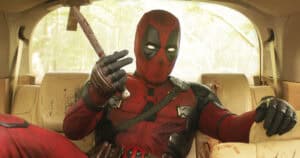
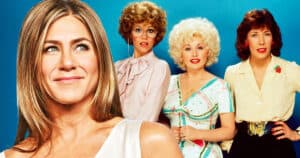
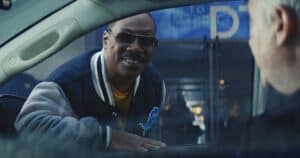

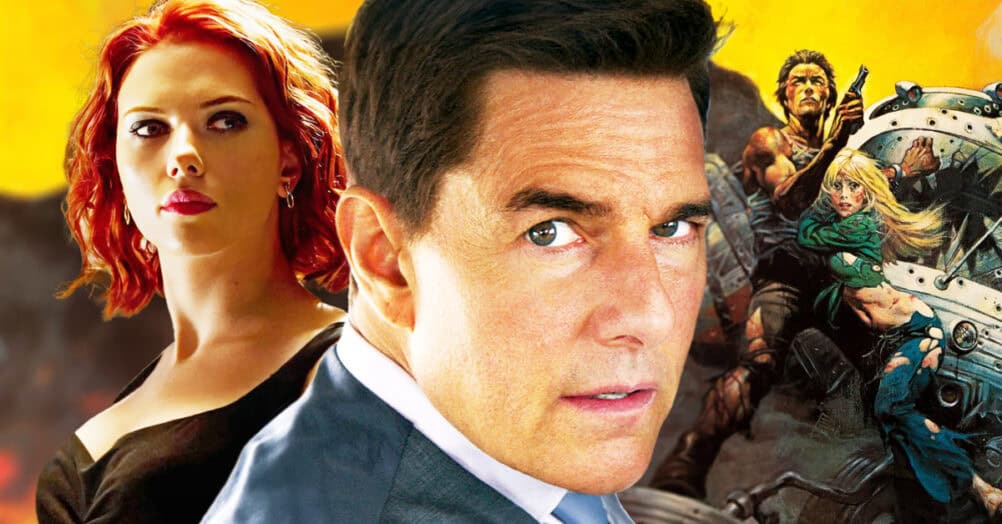
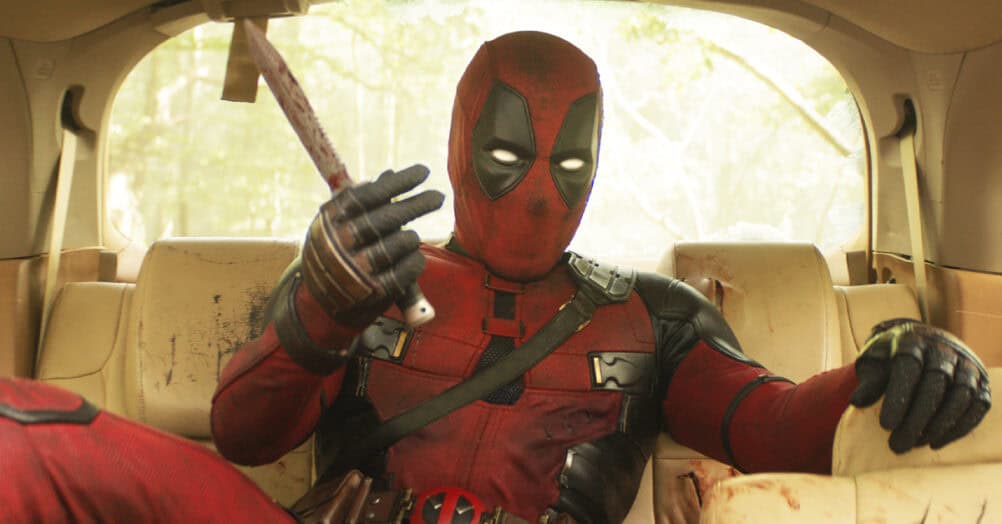

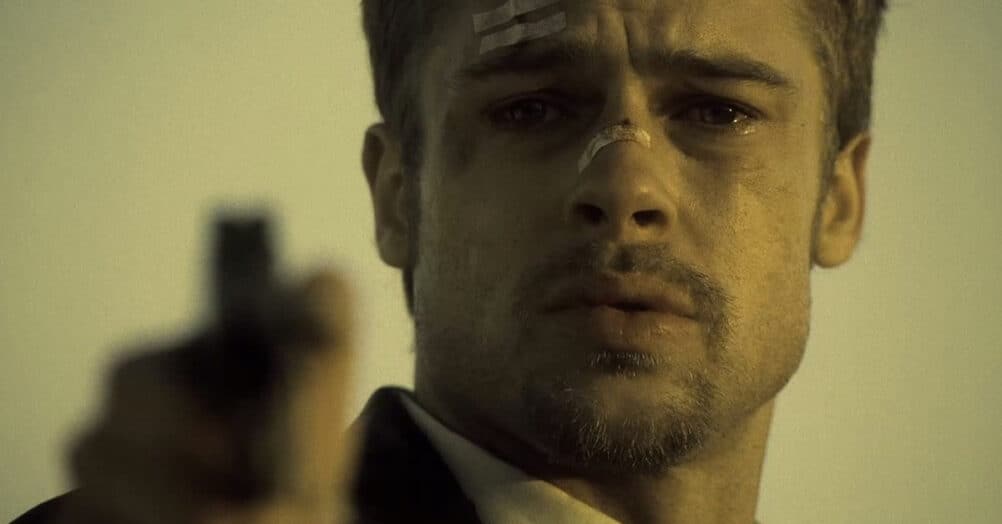
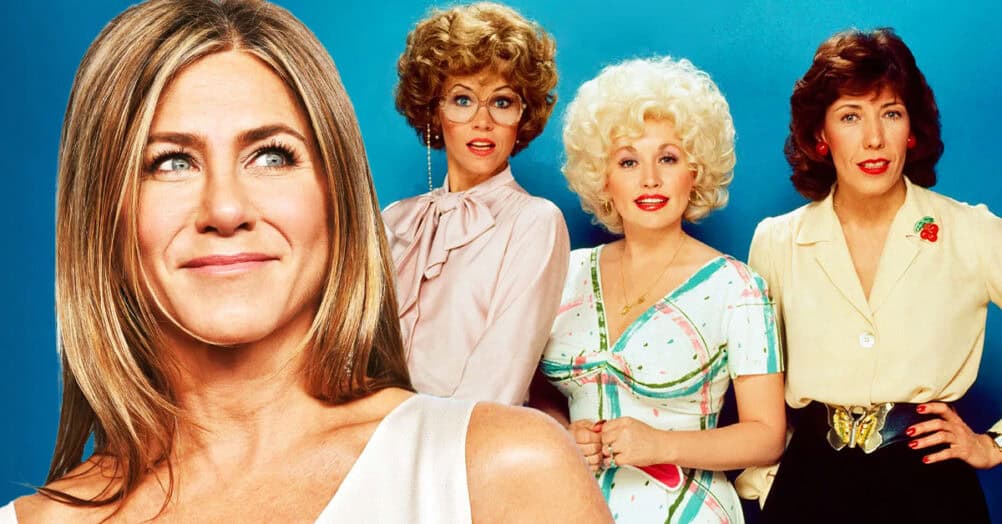
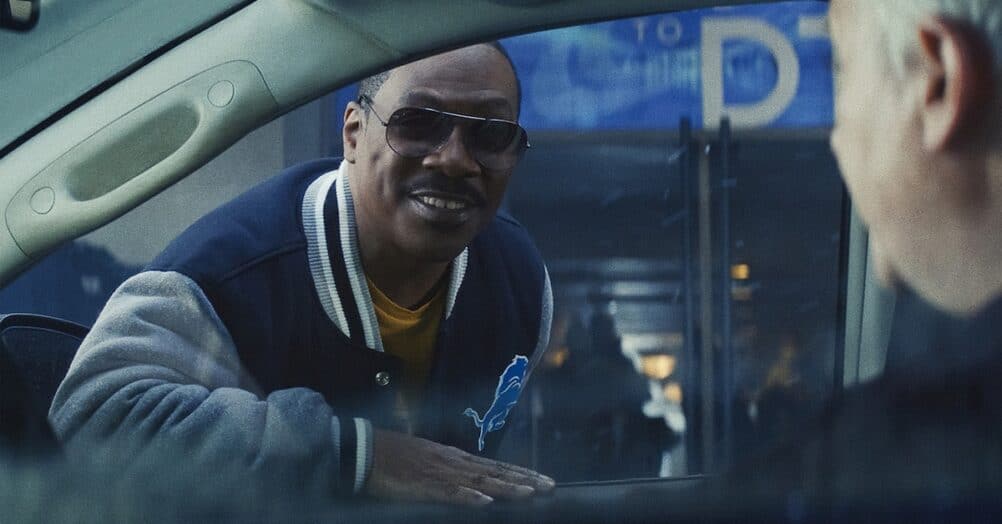
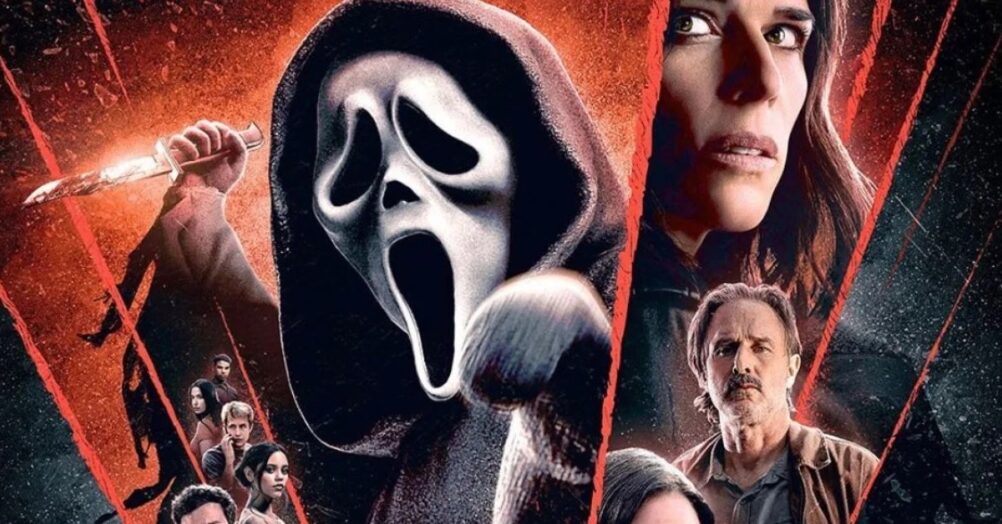
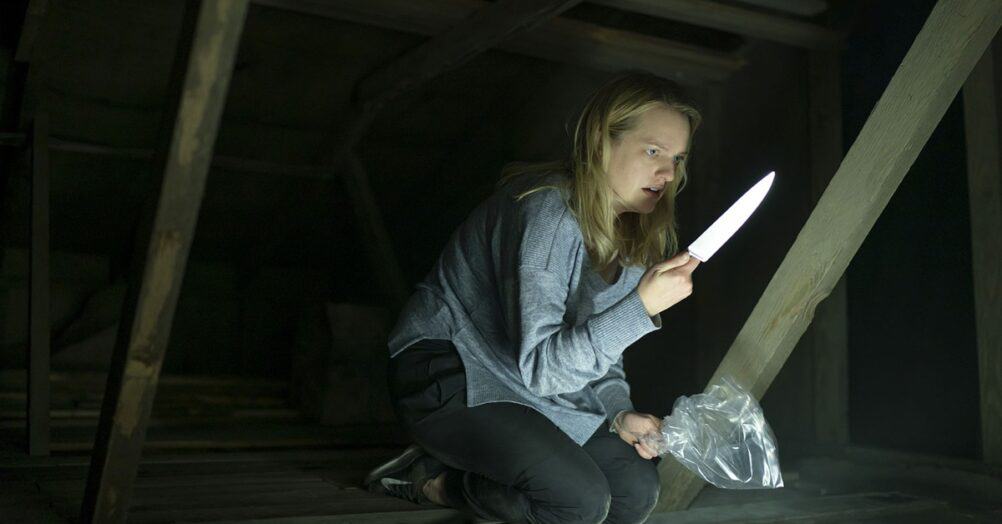
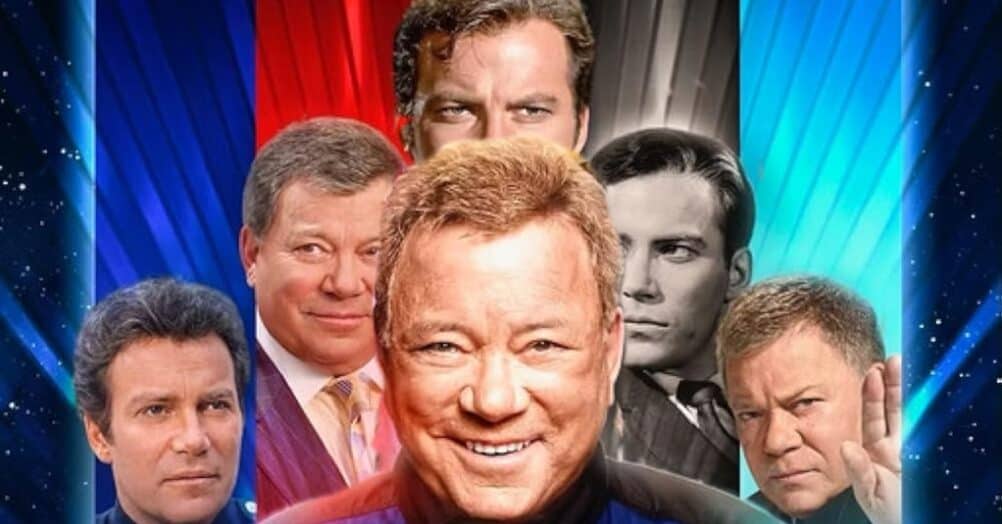

Follow the JOBLO MOVIE NETWORK
Follow us on YOUTUBE
Follow ARROW IN THE HEAD
Follow AITH on YOUTUBE